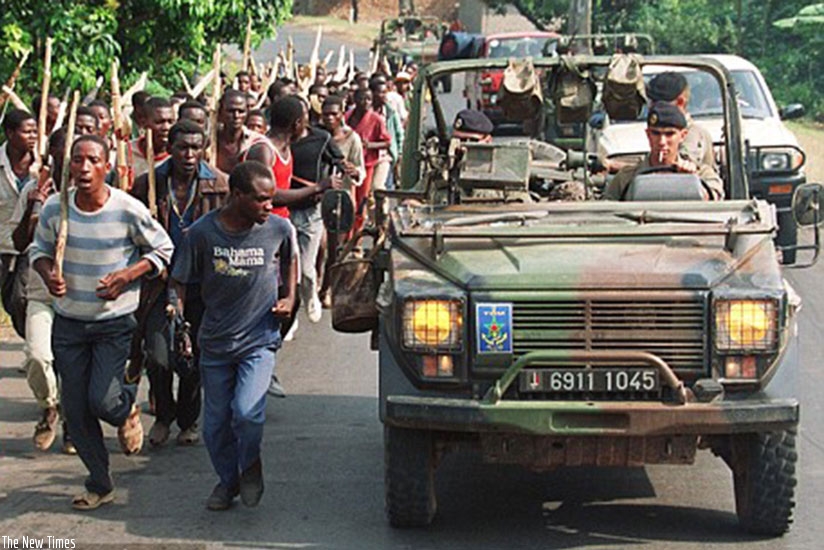This isn’t just about France. France being accused and ultimately convicted (one can only wish) of complicity in the most petrifying genocide in recorded history, means that the West as a whole would be held accountable and asked to pay reparations.


Editor,
RE: "French inquiry into Genocide? Truth will ultimately prevail” (The New Times, October 4). As absurd as I’m about to sound, I’m somewhat glad, for lack of a better term, that Rwandans and Africans in general are finally losing hope in France ever allowing access to the archives related to the 1994 Genocide against the Tutsi in Rwanda. This means that more and more people, especially those of us who have directly suffered at the hands of French (and Western) bloody imperialism, aren’t blinded by self-congratulatory slogans the West often uses to caricature itself as the bastion of human rights and high moral standards.
This isn’t just about France. France being accused and ultimately convicted (one can only wish) of complicity in the most petrifying genocide in recorded history, means that the West as a whole would be held accountable and asked to pay reparations.
The question then becomes: Who has that authority? Certainly not the United Nations. This institution is just as guilty and it only serves the interest of the West and its imperialistic tendencies.
But continuing to expose all of these foreign institutions and government agencies does a lot of harm to them that we may not realise at this point in time. But patience is a virtue!
Ali Rukariza
****************************
I completely agree with Mr Rukariza. I also note the absurdity of expecting a guilty party to hang out the concrete detailed proof of its own guilt for all to see. Why would Paris agree to do that when no one has the power to compel them?
The good thing is that in refusing to open up their archives on their Rwanda doings before, during and after the Genocide against the Tutsi, in which nobody doubts their central role, they in fact admit they have a lot to hide – itself sufficient proof of guilt.
In other words, Paris has weighed the consequences of opening up or stonewalling and decided that, on balance, it is much more less damaging not to open up their records and let people assume they are hiding the evidence of their guilt than open them and remove all doubt – worse, show the entire world (beyond Rwandans and a few of France’s Western allies, who know very well France’s role in the Genocide against the Tutsi) the sordid extent of that role.
Contrary to most people, I fully appreciate that, like any other guilty party, France has a right not to be the agent of its own self-incrimination. And, that it doesn’t matter anyway; for, only the truly guilty refuse so obstinately to release information that might help to clear them of what they are accused of, which they deny. Let them continue to stonewall.
Like any accused, they have the right to remain silent – and the rest of the world has a right to draw its own inference from that refusal to open up records that might, if they were as guiltless as they insist, help to exonerate them.
Our role should be to continue to throw maximum light on their fear of opening up of their archives on their role in the Genocide, and let objective observers be the judge.
Mwene Kalinda


